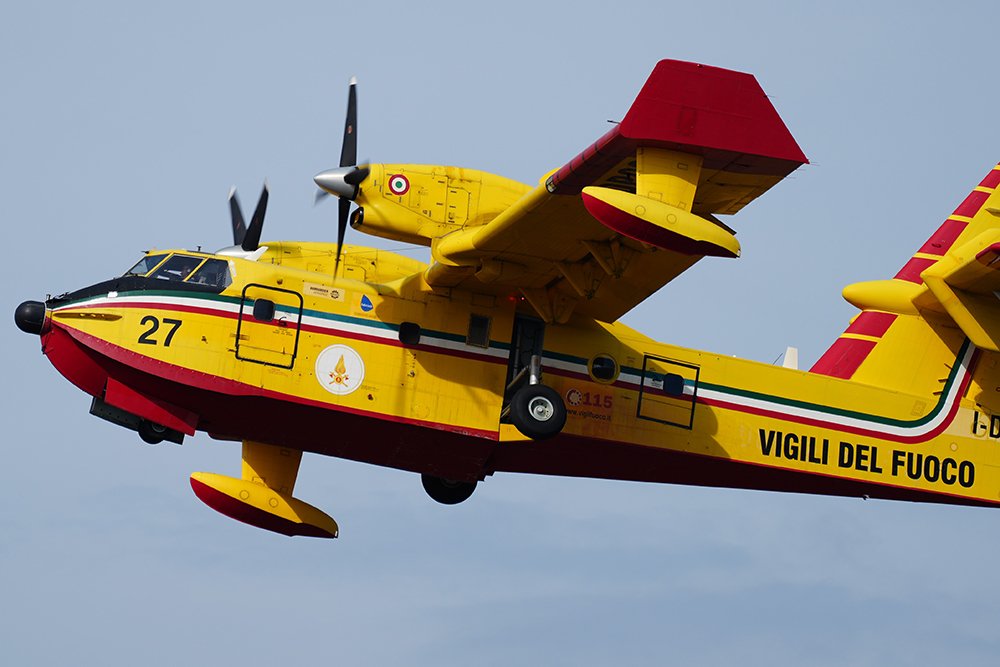
The roots of Italy's firefighting efforts can be traced back to ancient Rome. The Romans established the "Vigiles" in 27 B.C., a group responsible for fire prevention and control within the city. They were the first recorded firefighters in history, employing a rudimentary but effective system of water distribution and organized response teams. This early firefighting infrastructure laid the foundation for what would later become the modern Italian Fire Service.
Fast forward to the 19th century, and Italy began to establish organized firefighting services in its major cities. However, it wasn't until the 20th century that these services were consolidated into a national organization. In 1941, the Italian Fire Service, or "Vigili del Fuoco," was officially established under the Ministry of the Interior.
The Italian Fire Service operates under a hierarchical command structure. At the top of the organization is the Chief of the Fire Brigade, who is responsible for overall operations and policy implementation. Below the Chief, there are regional and provincial commanders, each overseeing a specific geographic area.
The Italian Fire Service has developed specialized units to handle a wide range of emergencies, including fires, natural disasters, and technical rescues. These units include:
These are the backbone of the Fire Service, responsible for extinguishing fires, rescuing trapped individuals, and providing emergency medical care.
Equipped to handle chemical, biological, radiological, and nuclear incidents, these teams play a critical role in mitigating hazardous material disasters.
Highly trained teams equipped with specialized equipment for urban and wilderness search and rescue missions, including earthquake response.
Water rescue teams skilled in diving operations for underwater rescue and recovery missions.
These teams use helicopters for aerial search and rescue operations, often in challenging terrain.
Trained dogs and handlers assist in search and rescue efforts, disaster recovery, and detecting accelerants in arson cases.
Experts in complex rescues, such as collapsed buildings, confined space, and high-angle rope rescues.
Firefighters in Italy undergo rigorous training, which includes both classroom instruction and hands-on experience. Training covers fire suppression, emergency medical response, hazardous materials handling, and specialized rescue techniques.
The Italian Fire Service is equipped with modern firefighting gear, including protective clothing, breathing apparatus, and advanced tools. They also utilize state-of-the-art technology, such as thermal imaging cameras and GPS, to enhance their efficiency during operations.
The Italian Fire Service has a broad range of responsibilities beyond firefighting:
Responding to fires in residential, commercial, and industrial settings, their primary duty is to save lives and protect property.
Many Italian firefighters are also trained paramedics, providing essential pre-hospital medical care to those in need.
They conduct complex rescue operations, including vehicle extrications, urban search and rescue, and wilderness rescues.
The Fire Service plays a crucial role in responding to natural disasters like earthquakes, floods, and landslides.
In addition to responding to emergencies, firefighters are involved in educating the public about fire safety and conducting inspections to ensure compliance with fire codes.
Italy's diverse landscape, from mountains to coastlines, presents unique challenges for its firefighters. They are often called upon to respond to a wide range of emergencies, and their dedication shines through in every situation.
Italy faces annual threats from forest fires, especially during the scorching summer months. The Italian Fire Service has specialized units and aircraft to combat these wildfires. They coordinate with other agencies and use water-bombing planes and helicopters to suppress flames quickly.
Italy is situated in a seismically active region, making earthquakes a constant concern. The Fire Service plays a crucial role in search and rescue efforts following earthquakes. They are often the first on the scene, working tirelessly to locate and extract survivors from the rubble.
Heavy rainfall in Italy can lead to flooding and landslides. Firefighters are essential in providing swift evacuations, flood control measures, and recovery efforts in affected areas.
Italy's many historic buildings and challenging terrain require specialized technical rescue teams. Firefighters are trained to navigate confined spaces, rappel down cliffs, and perform complex extrications to save lives.
The Italian Fire Service's commitment to the community goes beyond emergency response. They engage in proactive measures, such as fire prevention campaigns, educational programs in schools, and fire safety inspections to reduce the risk of disasters. Their work extends to assisting in wildlife rescue and environmental protection efforts, showcasing their dedication to the well-being of both people and the environment.
Despite their admirable efforts, the Italian Fire Service faces several challenges:
Ensuring adequate resources, including personnel and equipment, for a diverse range of emergencies can be a logistical challenge.
Increasingly severe weather patterns, including extreme heat, droughts, and heavy rains, pose new challenges for firefighting and disaster response.
Maintaining a skilled and motivated workforce requires continuous training and recruitment efforts.
Educating the public about fire safety and emergency preparedness remains a critical goal.
To address these challenges, the Italian Fire Service continues to evolve and adapt. They invest in technology, expand their training programs, and collaborate with international partners to enhance their capabilities.
The Italian Fire Service, known as the "Vigili del Fuoco," is a testament to the dedication and bravery of its firefighters. From ancient Rome to modern Italy, they have served as the frontline responders in emergencies, saving countless lives and protecting the country's heritage and natural beauty.
Their commitment to public safety, proactive prevention efforts, and adaptability in the face of evolving challenges make the Italian Fire Service an essential institution in Italy. These unsung heroes embody the spirit of service and sacrifice, ensuring that Italy remains a safer and more resilient nation.

More Details